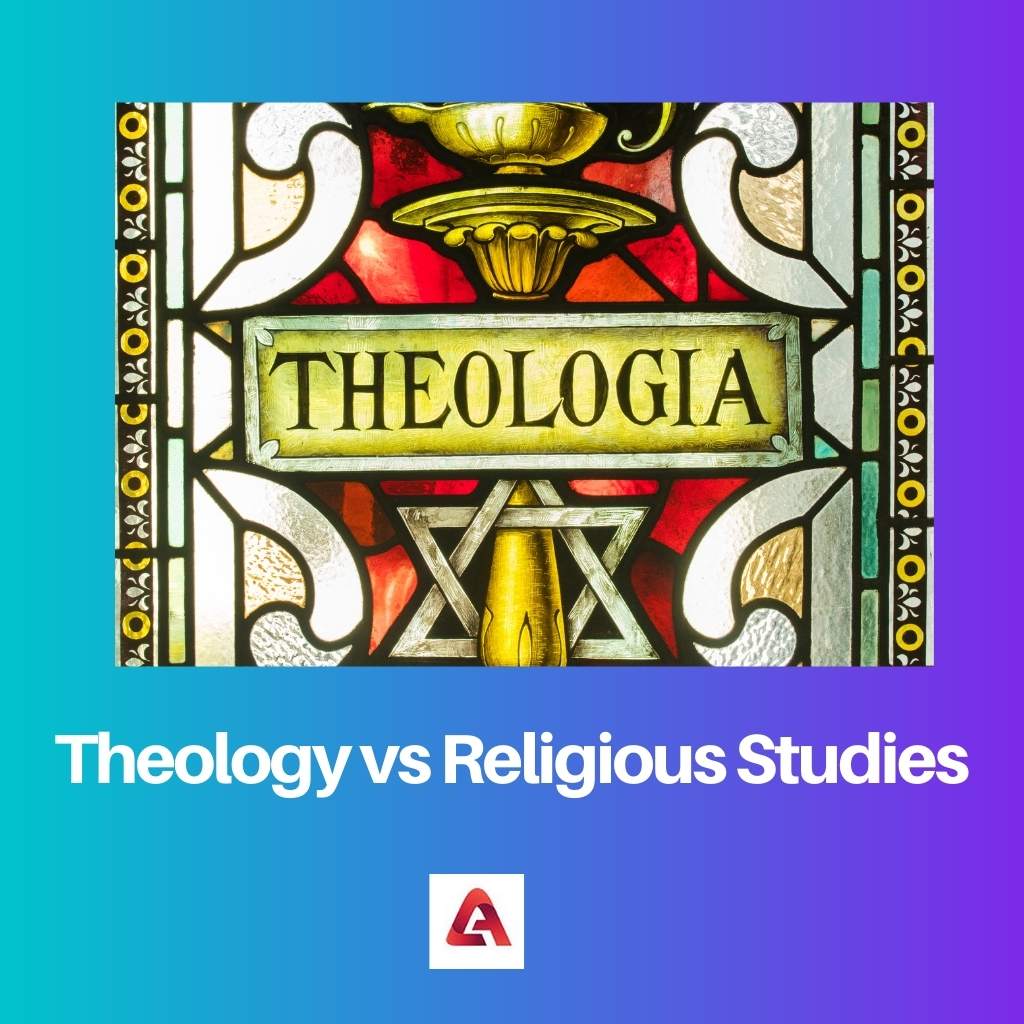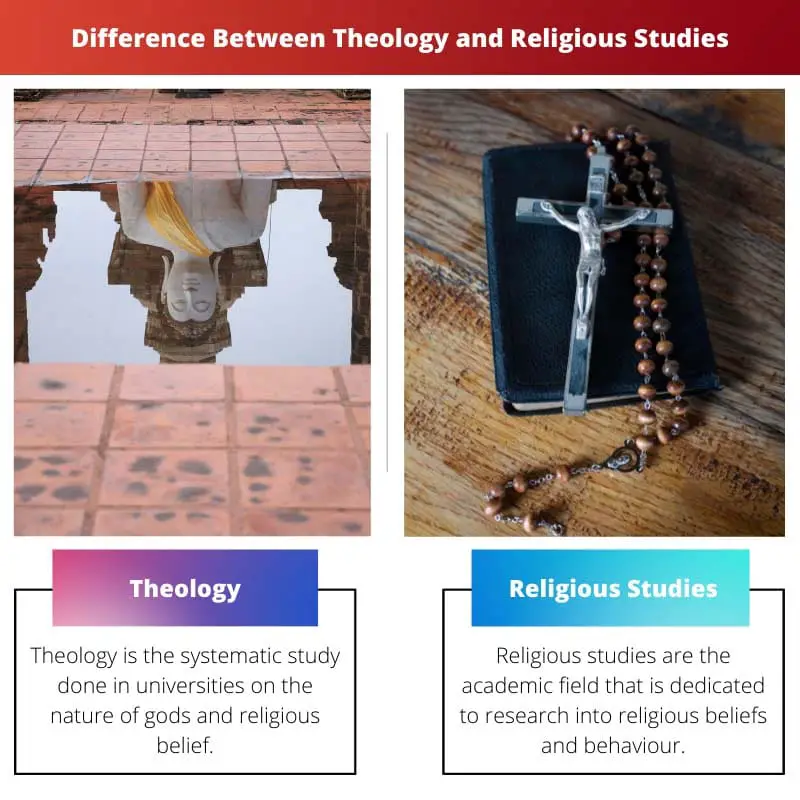Theology and religious studies are two branches of academics. The common notion prevails that both are studies of gods and religions, but that is incorrect. The theme of these two cases is completely diverse from each other. A detailed description of these two might wipe out the confusion.
Key Takeaways
- Theology is the study of the nature of God and religious belief. In contrast, Religious Studies studies religions as human phenomena, including their history, beliefs, practices, and cultural impact.
- Theology is based on a particular religious tradition, while Religious Studies take a more comparative and interdisciplinary approach.
- Theology is taught in religious institutions, while Religious Studies is taught in secular institutions.
Theology vs Religious Studies
Theology is the study of God and religious beliefs. In theology scriptures, rituals are used in order to find answers to questions related to the nature of God and religious beliefs. Religious studies deal with the understanding of factors and behaviours on the basis of which people follow a religion.

Theology is the systematic study done in universities on the nature of gods and religious beliefs. Theology tries to answer the question asked in religion. Theology is thinking about questions that are raised by and about religion.
Theology is trying to find the answer to the questions through the counsel of the divine.
Religious studies, or the study of religion, is the academic field that is dedicated to research into religious beliefs and behaviour. It is not seen from one religious perspective.
Rather, it studies multiple religions and their history. Methods of this study include the study of religion based on anthropology, sociology, psychology, and philosophy.
Comparison Table
| Parameters of Comparison | Theology | Religious Studies |
|---|---|---|
| Definition | Theology is the systematic study done in universities on the nature of gods and religious belief. | Religious studies are the academic field that is dedicated to research into religious beliefs and behaviour. |
| Analyzse | Theology works with the analysis of religious rituals and texts or scriptures and tries to search for the answer to questions related to divinity. | Religious studies deal with the background and history of the religions rather than the beliefs and scriptures. |
| Function | Theologians work with the idea of proving the already given facts and truths by the religious leaders in the religious scriptures. | Religious Studies work with the background of the religions of a certain time and establish a theory about a society based on psychology and sociology. |
| Belief | A theologian needs to believe in religion in order to prove the so-called facts of it. | A person pursuing religious studies does not need to believe in any religion per se. |
| Focus | Theology only focuses on religion and its scriptures. | Religious studies do not study religion. It studies the background of a particular time and assesses the current situation of that time. |
What is Theology?
The word theology comes from Greek words. Its literal meaning is ‘word of god’. This academic discipline is studied in universities, seminaries, and schools of divinity. Theology allows the understanding of religious concepts and practices more adequately.
Theologians study various rituals, ceremonies, and scriptures so that they get to know more about the divine power. This divine power can be gods or deities, depending on the religion. Theology is the systematic study of divine and religious belief.
Theologians discuss scriptures and develop various hypothetical arguments. Theologians try to find answers to various questions. For instance, if the question is ‘how to achieve salvation, then a theologian will try to find the answer based on a particular religion that he is following.
So if the theologians consult Buddhism, they can search for the answer to the question based on the instructions in the religious scriptures of Buddhism.

What is Religious Studies?
Religious studies do not study religion. This subject observes the background of a particular time and assesses the current situation of that time, and tries to evaluate why people chose one particular religion over others.
It studies behaviours and institutions. It describes and explains religions and compares them with each other. This subject adopts a cross-cultural perspective.
To explain this with an example, we can say that it will study a particular region of a particular period and see which religion was the most popular and had a major influence on society and why.
It will try to research and explain why a certain religion grew stronger than others in one period.
If a religion became widespread because it was offering salvation easily, then religious studies will attempt to find out the cause behind the obsession of gaining salvation among the people of that time. This study will connect sociology, philosophy, and psychology with religion.

Main Differences Between Theology and Religious Studies
- Theology is the systematic study done on the nature of gods, deities, and religious rites and traditions. On the other hand, religious studies are the academic field dedicated to researching religious beliefs, behaviours, and backgrounds.
- Theology analyses religious rituals and texts or scriptures and tries to search for the answers to divinity-related questions. In contrast, religious studies analyze the background and history of the religions rather than the beliefs and scriptures.
- One needs to believe in religion in order to prove the facts mentioned in the scriptures. But one does not need to believe in any religion to study religious studies. Rather it is better if the person is not inclined towards any religion.
- Theology tries to prove that religions have significance and that humans can lead a better life with their help. On the contrary, religious studies only research religions in the context of society and civilization.
- Theology only focuses on religion and its scriptures. In contrast, religious studies focus on history, philosophy, psychology, and sociology connected with religions. It studies the background of a particular time, assesses its current situation, and tries to evaluate why people chose one religion over others.






